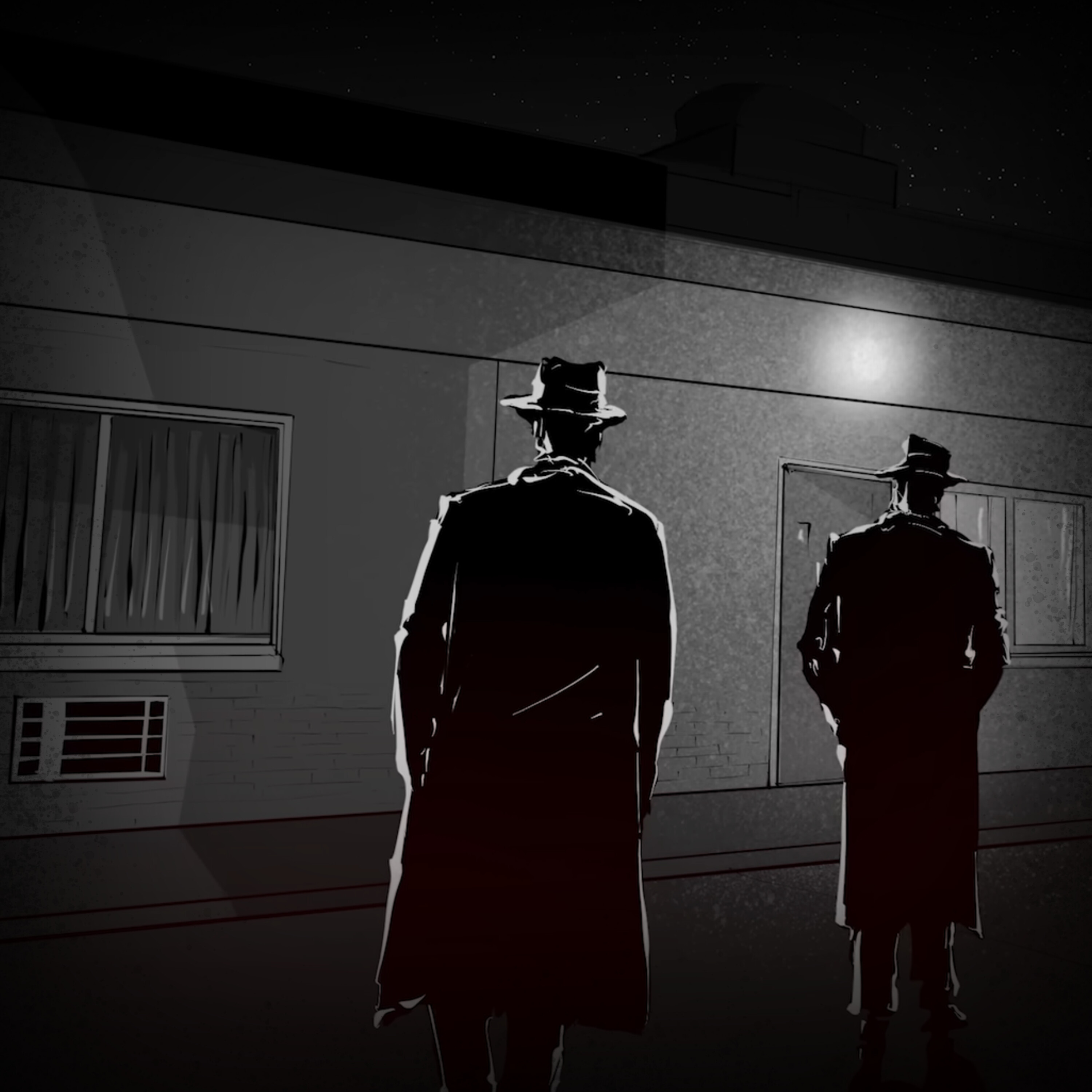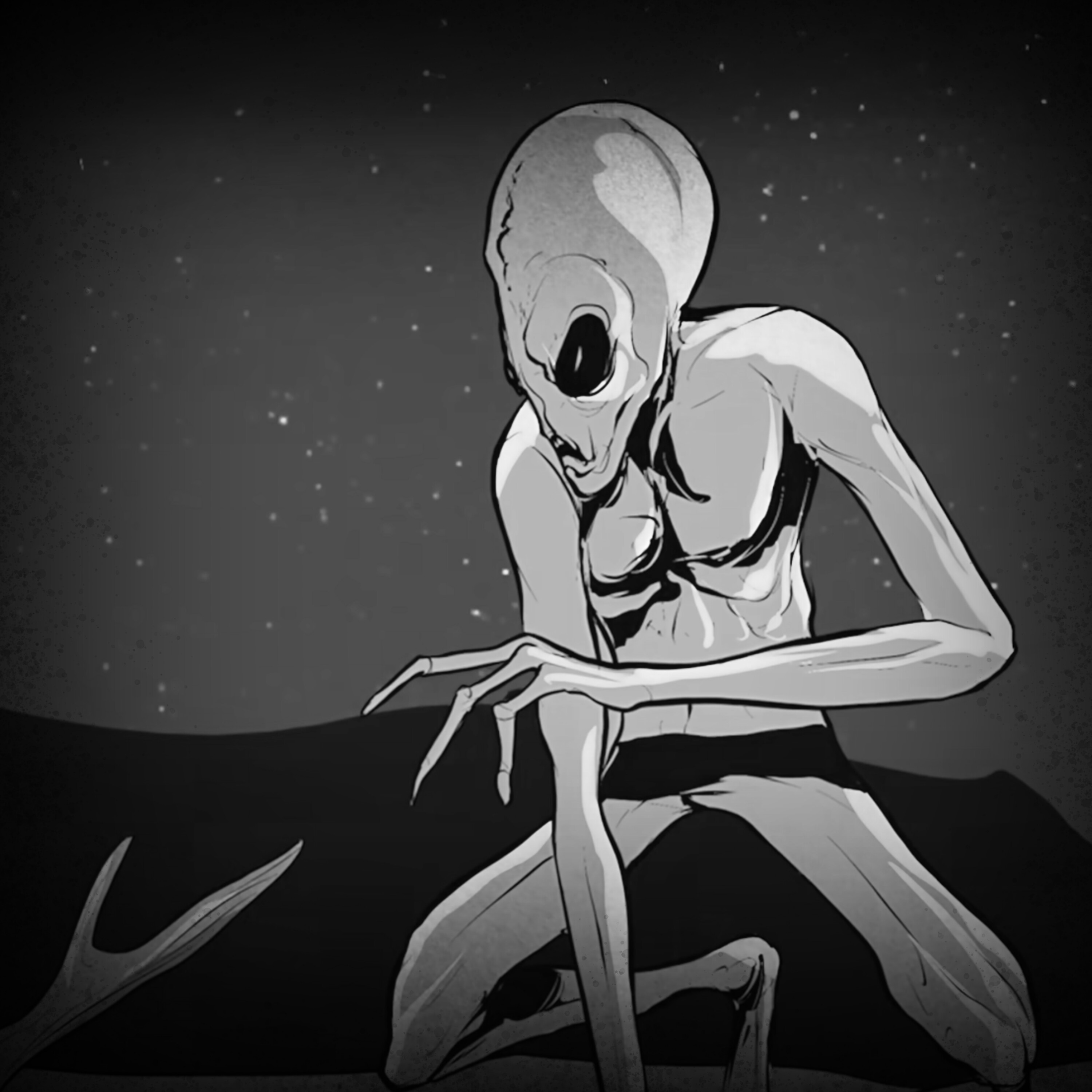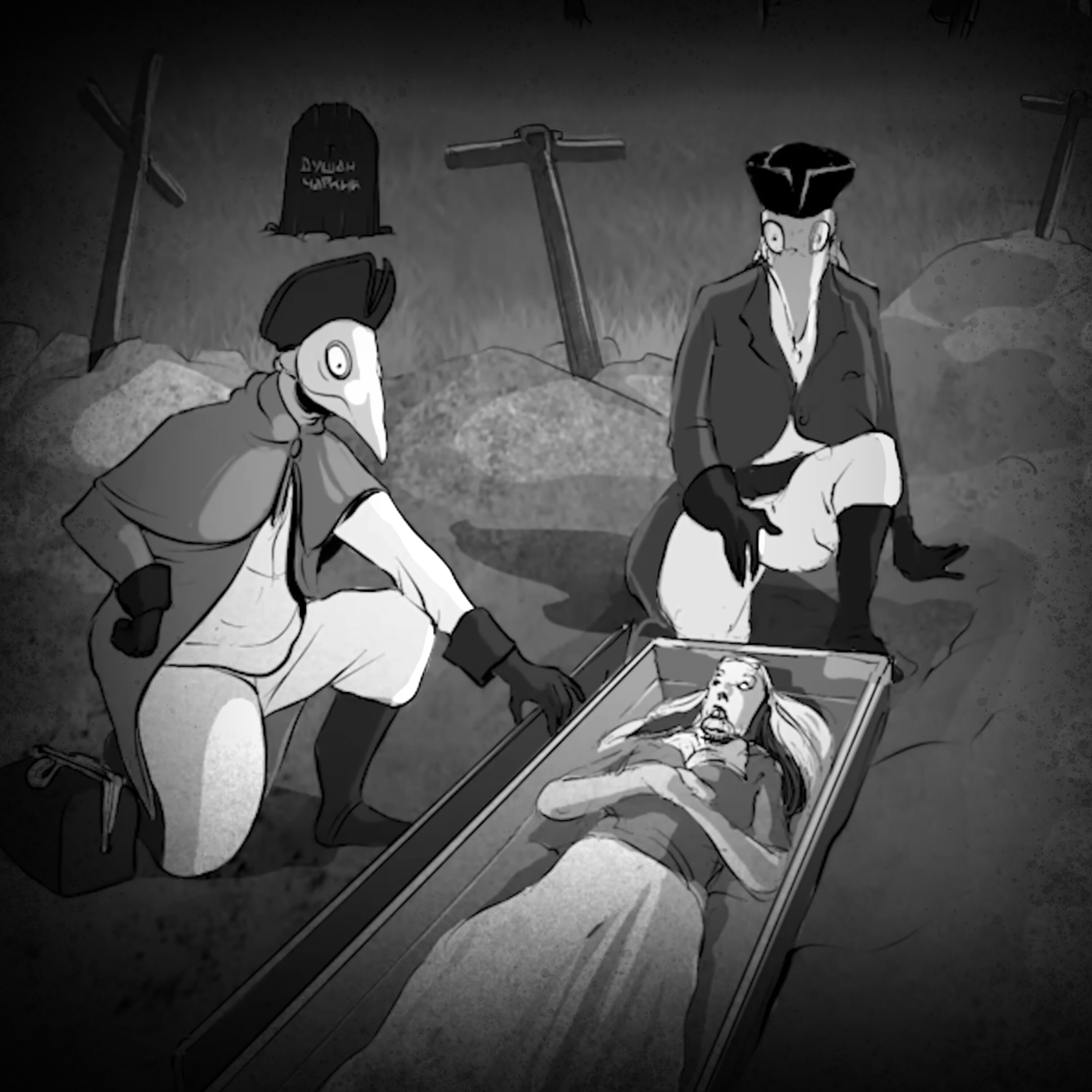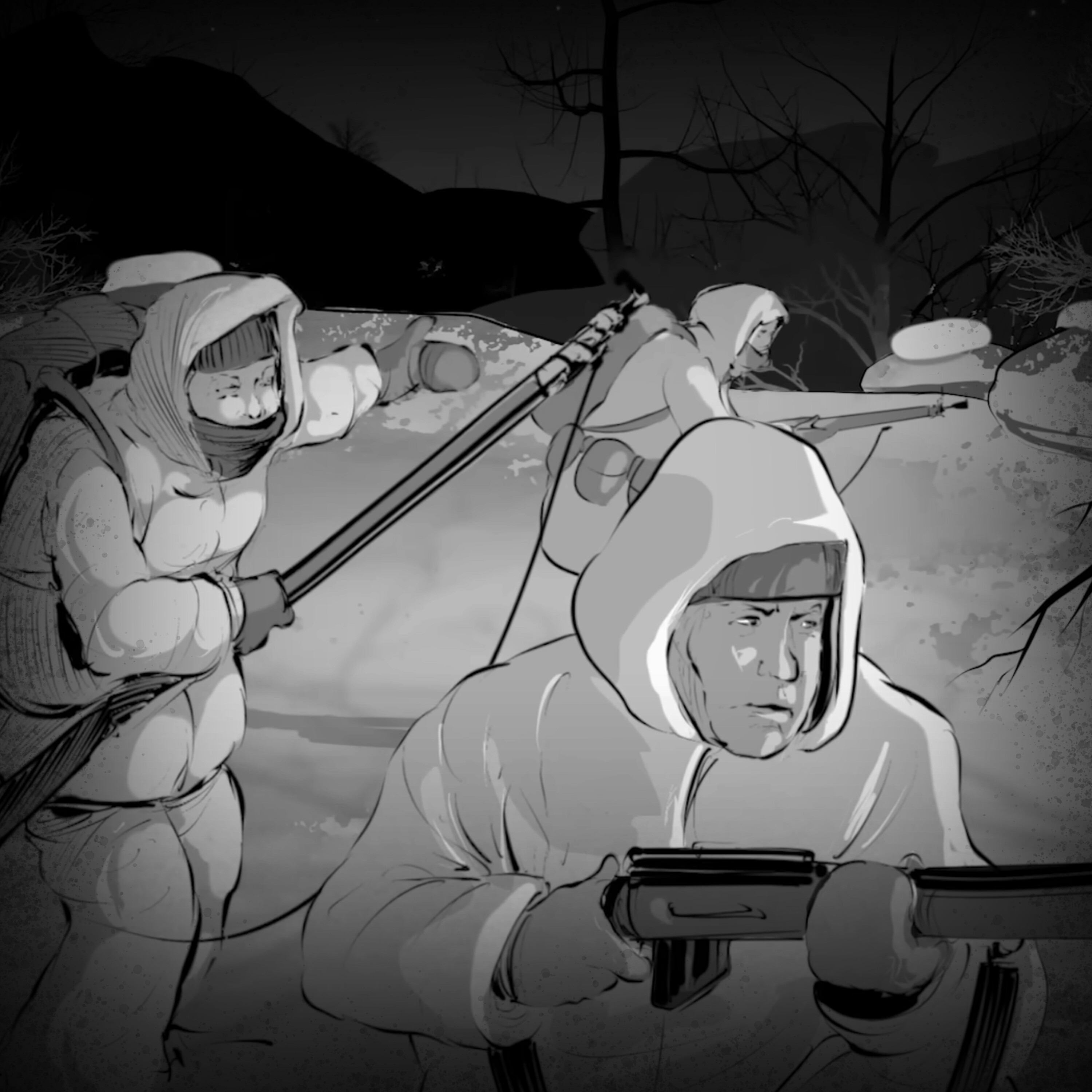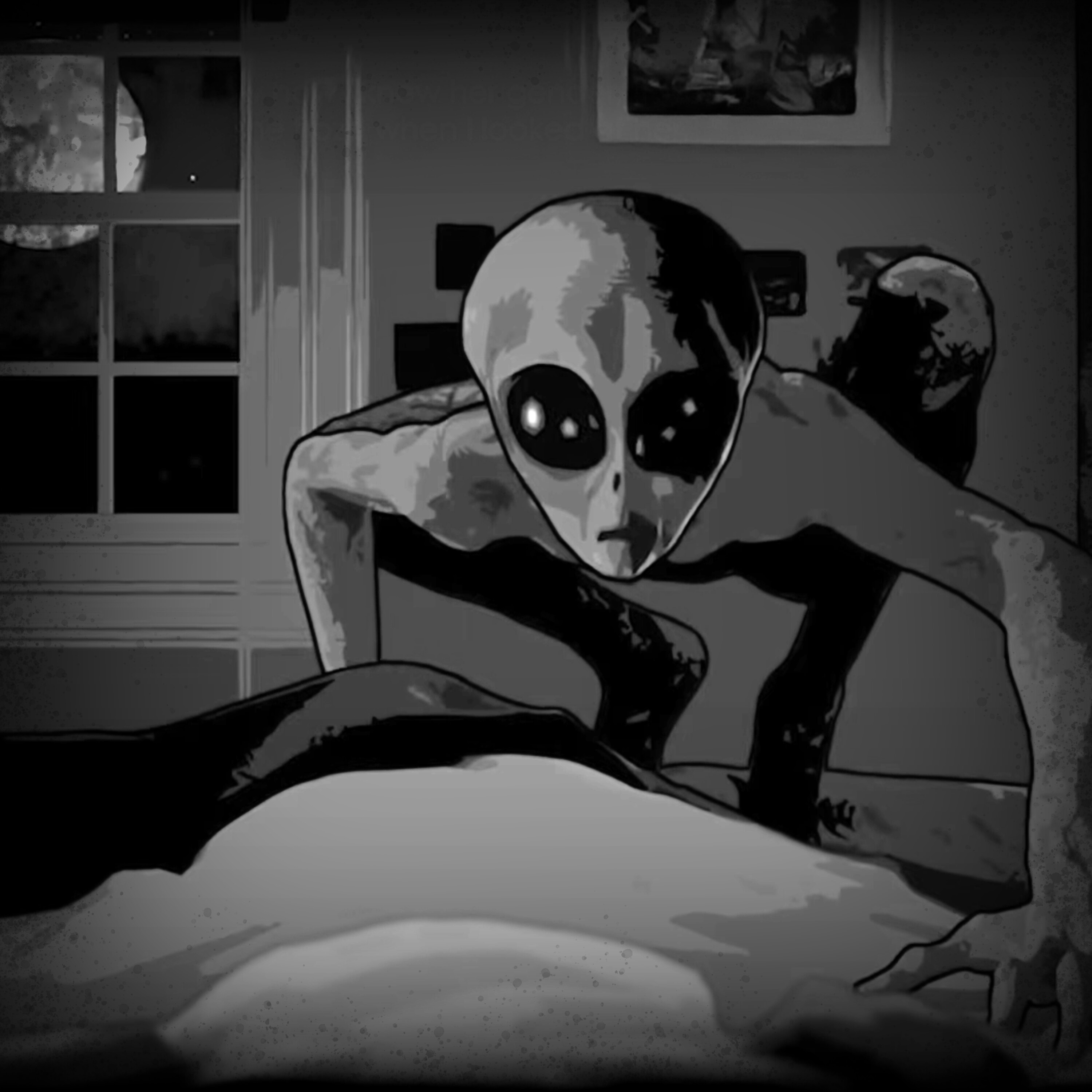The Disappearance of Lt. Whipkey
Why would a lieutenant remove all of his own teeth...?
See Privacy Policy at https://art19.com/privacy and California Privacy Notice at https://art19.com/privacy#do-not-sell-my-info.
Press play and read along
Transcript
Speaker 1 If you're drawn to stories like wartime stories, you'll enjoy exploring more from Balin Studios and Wondery, like my other podcast, Redacted Declassified Mysteries.
Speaker 1 Both shows are available early and ad-free on Wondery Plus. Start your free trial today.
Speaker 2 Looking for an electric SUV that doesn't compromise on space? Meet the all-new 2026 IONIC 9, Hyundai's first three-row, all-electric EV, space in an EV.
Speaker 2 Finally, with an impressive 335-mile range, this isn't your typical EV.
Speaker 2 Go further with up to an estimated 150 miles of charge in just 15 minutes on the Ionic RWD-9S when using a 350-kilowatt DC ultra-fast charger and CCS adapter. Actual charge time may vary.
Speaker 2 Plus, with glass-leading interior space, seven high-powered USB-C ports, and advanced features like highway driving assist 2, every journey is seamless.
Speaker 2
And, for peace of mind, there's a 10-year 100,000-mile battery warranty. Ready to explore more? Learn more about the IONIC 9 at HyundaiUSA.com.
Call 562-314-4603 for complete details.
Speaker 3 Taking on a DIY job around the house is the ultimate summer project. But if your DIY home security system is a beware of dogs sign when your real pet is Princess the Cat, that's safe-ish.
Speaker 3 To be actually safe, help protect your home with a DIY system from ADT. It's easy to install and gives you virtual assistance from ADT's technical support team.
Speaker 3
Best of all, you can tell everyone in the neighborhood you set it up yourself. Don't settle for safe-ish this summer.
DIY with ADT instead. Visit ADT.com to learn more.
Speaker 1 For the young men and women who make it their first career choice, enlisting in the military is a unique experience in many regards, the least of which is how much their family, their parents, siblings, etc., play a role in this decision.
Speaker 1 Signing an eight-year contract is a weighty decision for someone just out of high school to make.
Speaker 1 And let's be honest, most of us who have served could have never predicted what would then happen over those eight years, good or bad.
Speaker 1 At the forefront of any family's concerns is, of course, the dangers involved with military service. And yes, many military career fields will expose service members to a variety of risks.
Speaker 1 Far from the front lines in actual combat, it's no secret that more than half of all deaths in the military actually occur as the result of accidents and work-related illness or injury.
Speaker 1 In the end, though, many veterans will say that the reward for serving their country was worth it.
Speaker 1 But when someone does get hurt, the least of what any family can ask for from their government is transparency. In the case of the Whipkey family, however, this is sadly not the case.
Speaker 1 After all, a bright young Army pilot with a promising future who kept regular communication with his loving family doesn't simply have all of his teeth pulled out, then one day decide to drive far off base, park his car in the middle of the desert, and go for a walk.
Speaker 1 But that's exactly what his family was told. leaving all of us with many unanswered questions.
Speaker 1 What did he know that caused the U.S. Army to immediately declare a man with no history of wrongdoing a deserter and subsequently make no effort to look for him?
Speaker 1 Did his proximity in flying his aircraft near Area 51 have anything to do with his disappearance? Who were the strange men in black suits that witnesses saw intimidating him?
Speaker 1 Was he the unwitting victim? of human experimentation by the U.S. government.
Speaker 1 And why did the FBI conveniently claim they had burned all records of his case when his family began to demand answers?
Speaker 1 This is the story of the strange disappearance of Lieutenant Paul Whipke.
Speaker 1 I'm Luke Lamana,
Speaker 1 and this is Wartime Stories.
Speaker 1 Born on April 25th, 1932, in Murraysville, Pennsylvania, it didn't take Paul Whipke long to realize that he wanted a career in the U.S. Army.
Speaker 1 Enrolling in the Pennsylvania State University Reserve Officer Training Corps, or ROTC, the aspiring soldier would graduate in 1954 with an Army commission and a degree in civil engineering.
Speaker 1 From there, Whipke sought to earn his flight wings, becoming an Army aviator by 1956, tasked with flying small, propeller-driven aircraft for various observational tasks.
Speaker 1 While the United States and its NATO allies were locked in a tense standoff with the Soviet Union in Europe, the newly christened First Lieutenant Whipke's first duty station assignment would find him at a lonesome outpost in the middle of the Nevada desert, a place called Camp Desert Rock.
Speaker 1 By 1957, the world was on uncertain footing, with many convinced that a nuclear exchange between the West and East was only a matter of time.
Speaker 1 As a result, the United States government ramped up the development and testing of their ever-evolving nuclear arsenal.
Speaker 1 Though atomic weapons were still in their infancy, the warheads being tested for the feared Third World War already far surpassed the destructive capabilities of those dropped on Hiroshima and Nagasaki a little over 10 years earlier.
Speaker 1 Camp Desert Rock was just one place that served as a testing range for these weapons.
Speaker 1 It also served as a training area where soldiers could observe the effects of nuclear explosions on the environment and prepare for operations in a hypothetical radioactive war zone.
Speaker 1 As part of his first official assignment, Whipke would take part in what was called Operation Plum Bomb.
Speaker 1 The operation was a mixture of atmospheric and underground nuclear detonations carried out between May 28th and October 7th, 1957. Of the 29 blasts that occurred, Whipke took part in at least five.
Speaker 1 While troops would observe these tests from the ground, Army aviators like Whipke would do so from the air, his reports giving researchers an invaluable bird's eye view of the explosion and its effects on both the ground and at higher altitudes.
Speaker 1 However, there was an even darker purpose to some of these tests, one that military officials withheld to many unknowing participants.
Speaker 1 On paper, the soldiers observing the blasts were always kept at quote-unquote a safe distance, assuring they were spared any of the weapons' harmful effects. However, this was not always the case.
Speaker 1 In many instances, such as the infamous Jason test, the partaking soldiers were deliberately brought within range of the nuclear fallout so that its effects could be observed on the human body.
Speaker 1 For the most part, the soldiers who volunteered or were otherwise roped into the tests were largely kept in the dark regarding the dangers of radioactive exposure.
Speaker 1 Flying around in his small aircraft within proximity of the nuclear blasts, Whipke, like so many troops on the ground, was bombarded with dangerous amounts of radiation.
Speaker 1 In the aftermath of participating in a number of these observational flights, the young officer's health began to take a turn for the worse.
Speaker 1 After only a handful of observational flights, the effects of radiation sickness were beginning to take a toll on Lieutenant Whipkey.
Speaker 1 The first signs came in the way of small black moles spread across his body. which were then followed by extensive rashes resembling burns and painful blisters developing on his hands.
Speaker 1 Eventually, the radiation began to wreak havoc on Whipke's bodily functions, resulting in intense stomach pains that almost completely stripped the man of his desire to eat.
Speaker 1 While being treated in the base's infirmary, Whipke's condition would further deteriorate as, one by one, his teeth began to fall out of his mouth.
Speaker 1 With no way to effectively counter the effects of the radiation, Army medical staff removed the remainder of Whipke's teeth, replacing them with a set of fitted dentures.
Speaker 1 In just a few months, Paul Whipke had gone from being in peak physical condition to complete shambles, his mental health also taking a steep nosedive as he was transferred to Fort Ord, California in October 1957.
Speaker 1 To his friends, family, and superiors, Whipke was known as a dedicated and professional soldier.
Speaker 1 Though his military career was just starting, he had developed a reputation as a strong leader, greatly respected by his subordinates and valued by his commanding officer.
Speaker 1 However, during the latter part of Whipke's tenure at Camp Desert Rock, those around him started to notice an alarming change in his behavior.
Speaker 1 The normally calm and cool officer had seemed to become more erratic and withdrawn, distancing himself from both loved ones and peers.
Speaker 1 While his radiation sickness almost certainly had an effect on his overall mentality, it appeared as if Whipke was constantly on edge, always glancing over his shoulder as if he was being followed or watched.
Speaker 1 It was no secret amongst the officers at Fort Ord that Whipke had fallen terribly ill during the course of his duties.
Speaker 1 Perhaps this is why they didn't look too deeply into the cause of the young officer's paranoia, thinking it was just a side effect of his radiation-damaged mind.
Speaker 1 Maybe when Whipkey told them he was going into town to grab a drink on July 10th, 1958, they thought it was a welcome turn.
Speaker 1 Some time away from the stress of work could probably do the poor guy a bit of good.
Speaker 1 They had no idea that that would be the last time Paul Whipke
Speaker 1 was ever seen again.
Speaker 1 Two days later, on July 12th, Paul Whipke's brother, Carl, telephoned Fort Ord in hopes of catching up with his younger sibling.
Speaker 1 Despite Paul's attempts to distance himself from his family, Carl was adamant about maintaining contact, especially with Paul's string of health issues.
Speaker 1 However, between the officers' treatments and military duties, Catching his brother at an opportune time was easier said than done.
Speaker 1 It had been many months since their last conversation, which was an odd one, to say the least.
Speaker 1 In a hushed voice, Paul was excitedly rambling on to Carl about an important assignment he was slated to take part in, one that he said would, quote, make a name for himself.
Speaker 1 Carl was unable to extract further details from his brother, who said he couldn't divulge the information due to some officers standing nearby.
Speaker 1 Since then, despite Carl's many attempts to reach out, Paul had seemingly dropped off the family radar.
Speaker 1 His concern only worsened when, after phoning into Fort Ord, the operator told Carl that Paul had been listed as going AWOL, or absent without official leave, the day prior. The news stunned Carl.
Speaker 1 Even with his brother's erratic behavior of late, He was still a committed soldier who wasn't one to simply walk off the job without reason.
Speaker 1 As he pressed for details regarding Paul's whereabouts and well-being, Carl took note of how cagey and elusive the operator was when responding to his questions.
Speaker 1 However, what information they were willing to give Carl struck him as particularly unnerving.
Speaker 1 At that point, Paul Whipkey was only classified as being AWOL, meaning that while he left his post without advanced warning or permission, there was no reason for the army to assume he'd outright deserted.
Speaker 1 And yet, despite this, Carl was told that men had already started packing up all of his brother's personal belongings to be shipped to his next of kin.
Speaker 1 To Carl, that made no sense, and as far as military regulations go, was outright illegal.
Speaker 1 If anything were to happen to Paul, his chain of command should have notified the family before clearing out all of his items. But no such calls were made to the Whipke family.
Speaker 1 Despite only being missing for a little over 24 hours, to Carl, it felt as if the Army knew that wherever Paul was, he wasn't coming back.
Speaker 1 When his brother's items finally arrived at his home, Carl found an overlooked document detailing Paul's participation in Operation Plum Bomb and the five observational flights he took during hazardous nuclear testing.
Speaker 1 And the deeper he dug into his brother's military records, the more Carl became convinced that the Army, or some other organization was behind his brother's disappearance.
Speaker 1 And he wasn't the only one who started to sense that something was off about the whole ordeal.
Speaker 4 Audival's romance collection has something to satisfy every side of you. When it comes to what kind of romance you're into, you don't have to choose just one.
Speaker 4 Fancy a dalliance with a duke or maybe a steamy billionaire. You could find a book boyfriend in the city and another one tearing it up on the hockey field.
Speaker 4 And if nothing on this earth satisfies, you can always find love in another realm. Discover modern rom-coms from authors like Lily Chu and Allie Hazelwood, the latest romanticy series from Sarah J.
Speaker 4 Maas and Rebecca Yaros, plus regency favorites like Bridgerton and Outlander. And of course, all the really steamy stuff.
Speaker 4 Your first great love story is free when you sign up for a free 30-day trial at audible.com slash wondery. That's audible.com slash wondery.
Speaker 5 Looking to refresh the style in your home? Here at Mathis Home, we can help you find exactly what you need during our spring style event.
Speaker 5 Whether you're looking for a rustic farmhouse, classic, or modern and eclectic, we have all the latest looks that will leave your home feeling brand new.
Speaker 5 Whatever your style, we can help you find it at the lowest price. Because not only do we want you to feel good in your home, we know that to earn your business, our prices have to be the best.
Speaker 5 So come to the spring style event at your furniture superstore.
Speaker 1 Mathis Holmes.
Speaker 1 In early August of 1958, Lieutenant Whipkey's official status was changed from AWOL to that of being a deserter.
Speaker 1 Upon hearing this news, the soldier's commanding officer, Lieutenant Colonel Charles Lewis, was left dumbfounded.
Speaker 1 During his time at both Camp Desert Rock and Fort Ord, Lieutenant Whipke had given the man little to complain about in way of poor conduct.
Speaker 1 Surely, given the young officer's declining health, him being missing should be a matter of great concern.
Speaker 1 And yet, now only a month after he had last been seen, Lewis couldn't see much urgency in the faces of the command staff with regard to the missing soldier.
Speaker 1 Where were the search parties, investigators, or house calls to friends and family? And the more Lewis dug for answers, the harder it seemed the military worked to block his efforts.
Speaker 1
Eventually, Lewis was confronted on the matter and urged to drop it altogether. The entire situation reeked of something strange.
What that was, Lewis couldn't say.
Speaker 1 However, as he reflected on his time serving alongside Whipkey at Camp Desert Rock, he remembered things that, in the moment, seemed rather unusual.
Speaker 1 Now, with no sign of his fellow officer and the army seeming to block all attempts to find him, those events took on a far more ominous light.
Speaker 1 On several occasions, both before and after missions, Lewis observed men dressed in civilian clothes walking around the base. Whoever they were, they definitely weren't military.
Speaker 1 Never once had he seen them be processed by the classified site's tight security. Furthermore, they seemed to regularly converse with Lieutenant Whipkey.
Speaker 1 While Lewis never learned about the nature of their hushed conversations, he and many others noticed how unsettled Whipkey was by the presence of these strange men.
Speaker 1 It certainly wasn't lost on Lewis that their arrival coincided with Whipkey's deteriorating health. Could that be what drew the shady individuals towards the unsuspecting lieutenant?
Speaker 1 Or perhaps, as he had hinted on the phone, was this just a part of a far larger web that Whipke had found himself tangled in?
Speaker 1 About a week after he was declared a deserter, Paul's vehicle was finally discovered, though not by military authorities.
Speaker 1 Over 500 miles away from Fort Ord, 40 miles from the nearest town and 15 miles from the main road, it was a fish and game warden who stumbled upon the 1956 Chevy left abandoned in the heart of Death Valley, California.
Speaker 1 Though it was in rough shape, having been left out in the desert sun for quite some time, the car bore no signs of damage or foul play.
Speaker 1 Eerily enough, the keys were still in the ignition, a pair of dog tags etched with Whipkey's name being found alongside a small briefcase of personal belongings.
Speaker 1 When word of this discovery reached the U.S. Army, they arrived at a fairly neat and tidy conclusion for what happened to the missing officer.
Speaker 1 According to the official report, 1st Lieutenant Whipke suffered a severe mental breakdown due to stress associated with an upcoming assignment.
Speaker 1 Not thinking straight, he abandoned his post and drove out to Death Valley, where he would wander off into the desert to inevitably die of exposure.
Speaker 1 To Carl, this explanation was littered with holes and oversights.
Speaker 1 Also, if he were to take this explanation at face value, then where was the effort to recover Whipke's body? Deserter or not, the military was known to go to any lengths in order to recover the dead.
Speaker 1 In fact, a formal search for Whipke's remains wouldn't begin until a staggering nine months after his car was discovered.
Speaker 1 At that point, finding any trace of Whipke, let alone an intact corpse, would be next to impossible.
Speaker 1 To many associated with the case, It seemed as if the military considered this was an open and shut investigation.
Speaker 1 The same could not be said for Carl Whipke, who, from the moment he was told of his brother's disappearance, embarked on a journey to uncover the truth behind his fate.
Speaker 1 Over the course of the next 25 years, Carl would gather an impressive array of evidence that lends credence to the idea of Paul, his brother, being caught up in some sort of conspiracy.
Speaker 1 As per Carl's findings, it was revealed that on July 10th, 1957, the last day Paul was seen, he had departed Fort Ord and made a beeline to White's Motel located 300 miles away in Mojave.
Speaker 1 According to the guest book, he would sign in that night and out the next day, where, according to a receipt found in his car, he would then go to purchase 14 gallons of gasoline.
Speaker 1 From where Paul was last reported in Mojave, that would be more than enough fuel to get him the rest of the way to Death Valley.
Speaker 1 However, Carl isn't certain that it was Paul who drove the car any further beyond White's motel.
Speaker 1 He believed that Mojave was some kind of rendezvous point for Paul. and whoever he was in contact with, the unknown men in question, commandeering the vehicle in order to dispose dispose of it.
Speaker 1 To back this, Carl points to the testimony of the wildlife wardens who first came upon Whipke's abandoned car. According to them, the ground around it was littered with burnt cigarette butts.
Speaker 1 However, Paul had never touched a cigarette in his life.
Speaker 1 The testimony of a local rancher also seems to lend this theory some validity. According to Carl, the man had supposedly seen a vehicle matching the one owned by Paul around the time he vanished.
Speaker 1 However, he distinctly remembered that the man behind the wheel of the car was dressed in formal military attire.
Speaker 1 When Lieutenant Whipkey was last seen leaving Fort Ord on July 10th, base personnel unanimously agreed that he was in civilian clothes.
Speaker 1 To boot, the suitcase discovered in the back of the officer's car held nothing by way of a military uniform.
Speaker 1 While speaking with Lieutenant Colonel Charles Lewis, it came to light that another Army aviator who had served alongside Paul had met a similarly grim fate.
Speaker 1 His name was 1st Lieutenant Charles Gess, a good friend of Whipke's who served alongside him at Camp Desert Rock.
Speaker 1 On July 22, 1958, just 12 days after Whipke went missing, Gess took off from Bishop, California in a reconnaissance plane and then vanished.
Speaker 1 In September 1959, wreckage of the plane and Gess's remains were discovered on White Mountain in Inyo National Forest.
Speaker 1 Oddly, the wreckage supposedly had a different serial number than the plane Gess originally took off in.
Speaker 1 Seeking more information, Carl formally reached out to the FBI in 1978, asking them to release any material relating to the case under the Freedom of Information Act.
Speaker 1 It is undeniably suspicious that, according to Carl, the FBI burned all documents relating to the case mere months before he called in December of the previous year.
Speaker 1 Taking into account the many oddities surrounding his brother's untimely disappearance, combined with the covert nature of his involvement in nuclear tests, Carl arrived at two possible conclusions.
Speaker 1 Theory one is that Paul was approached by members of an intelligence agency like the CIA and possibly recruited for a top-secret assignment, one from which they knew he would never return.
Speaker 1 In the grand scheme of things, this is a reasonable assumption. After all, the CIA likely knew that due to his advanced radiation sickness, Whipke was a dead man walking.
Speaker 1 Until his inevitable death, however, he was still a gifted aviator, one that could be of use to them on a particularly dangerous clandestine assignment.
Speaker 1 This possibility certainly brings to mind the strange phone call Paul had with his brother mere months before he disappeared, in which he spoke of a significant operation he had been assigned to.
Speaker 1 Theory too is far darker in nature:
Speaker 1 Human experimentation.
Speaker 1 What if, instead of trying to recruit Whipke, the strange men seen around Camp Desert Rock were there to intimidate him?
Speaker 1 At that point in history, the military's nuclear testing program was one of the most tight-lipped and secretive of any government project.
Speaker 1
Of course, people knew that nuclear weapons were being tested on a weekly basis. It was the Cold War after all, and someone had to keep the Soviets in check.
But the U.S.
Speaker 1 military deliberately exposing its own fighting men to lethal doses of radiation for the sake of research?
Speaker 1 If word got out, an outraged public would almost certainly turn on the government, thus putting a halt on a vital part of their nuclear studies.
Speaker 1 Is it possible that those shadowy agents were there to ensure Whipkey's silence, perhaps assessing whether or not he would be a potential whistleblower?
Speaker 1 This leads us to the chilling but unavoidable thought that these operatives not only orchestrated Lieutenant Whipke's disappearance, but also his murder.
Speaker 1 When considering the fate that befell his close friend, Charles Guess, and the oddities surrounding his case, is it too far-fetched to think that Paul Whipke met a similar, unjust end?
Speaker 1 In 1982, Carl Whipke would present his findings to the Army Board of Corrections in hope of reviewing his brother's case, possibly even opening the door for further investigation.
Speaker 1 While no new federal efforts would be made to look into Paul Whipke's ordeal, a three-day hearing was held that concluded there was no evidence to support Paul's status as a deserter.
Speaker 1 As a result, his status was officially changed to died in the line of duty, but the Army did not provide any additional explanation about what actually happened to him.
Speaker 1 While an unjustified black mark on the honorable soldier's record had been lifted, Carl and the rest of the Whipke family were still left without closure.
Speaker 1 To this day, no trace of Paul Whipke has ever been found.
Speaker 1 For many sleuths and conspiracy theorists, Whipke's case bears a number of eerie resemblances to encounters involving those who are known as the Men in Black.
Speaker 1 Beginning in the late 1940s, a number of people reported being visited by strange men dressed in black suits, typically in the aftermath of witnessing what they interpreted to be an unidentified flying object.
Speaker 1 Through thinly veiled threats, these men would coerce the witnesses into silence, implying that there would be consequences if they kept talking about things seen or heard.
Speaker 1 While there is no information available to lead us to believe Lieutenant Whipke's case is involved with any sort of UFO cover-up, There is one final interesting note about his military service that makes you think about some of the things he may have witnessed during Operation Plum Bomb.
Speaker 1 A mere stone's throw away across the Nevada wilderness from Camp Desert Rock is another secretive military site,
Speaker 1 one that supposedly harbors technology not of this earth.
Speaker 1 A place known,
Speaker 1 as you guessed it,
Speaker 1 Area 51.
Speaker 1
Wartime Stories is created and hosted by me, Luke Lamana. Executive produced by Mr.
Bollin, Nick Witters, and Zach Levitt. Written by Jake Howard and myself.
Speaker 1
Audio editing and sound design by me, Cole Lacascio, and Witt Lacascio. Additional editing by Davin Intag and Jordan Stidham.
Research by me, Jake Howard, Evan Beamer, and Camille Callahan.
Speaker 1
Mixed and mastered by Brendan Kane. Production supervision by Jeremy Bone.
Production coordination by Avery Siegel. Additional production support by Brooklyn Gooden.
Speaker 1 Artwork by Jessica Clongs and Kiner, Robin Vane, and Picada. If you'd like to get in touch or share your own story, you can email me at info at wartimestories.com.
Speaker 1 Thank you so much for listening to Wartime Stories.
Speaker 1
Hey, it's Luke, the host of Wartime Stories. As many of you know, Mr.
Ballin and Balin Studios have been a huge help in bringing this podcast to life.
Speaker 1
And if you'd like to believe you are something of a storytelling connoisseur, then you need to check out Mr. Balin's podcast, Strange, Dark, and Mysterious.
Each week, Mr.
Speaker 1 Balin weaves gripping tales of the Strange, Dark, and Mysterious, diving into true crime, unsolved mysteries, and paranormal events that keep you on the edge of your seat. Mr.
Speaker 1 Balin's podcast, Strange, Dark, and Mysterious, is available on all podcast platforms, and it is free, just like ours.
Speaker 1
There are hundreds of episodes available to Binge right now with new episodes twice a week. Go listen to the Mr.
Ballin podcast today.
